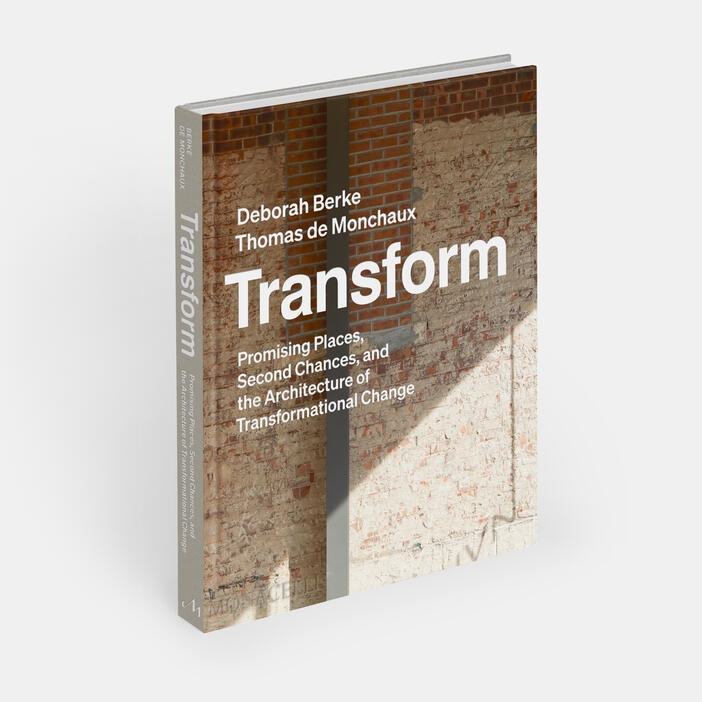
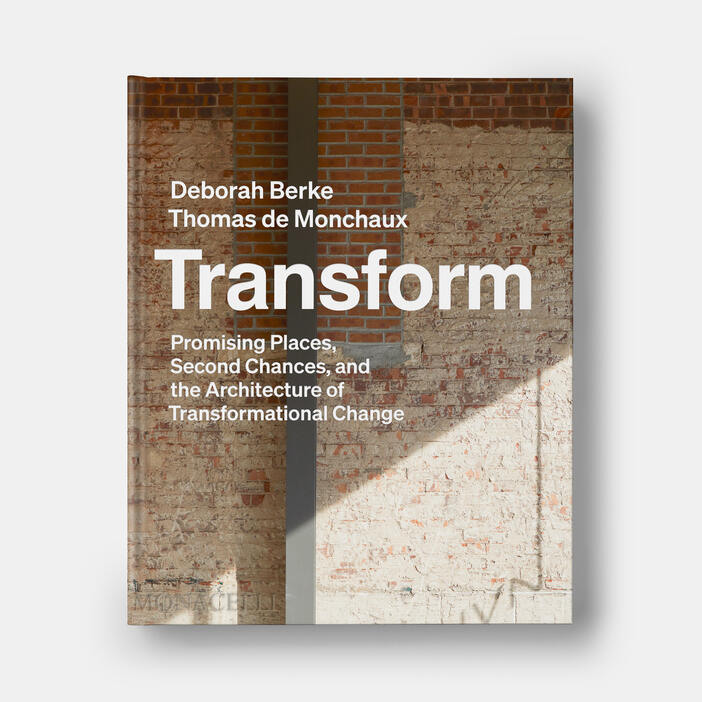
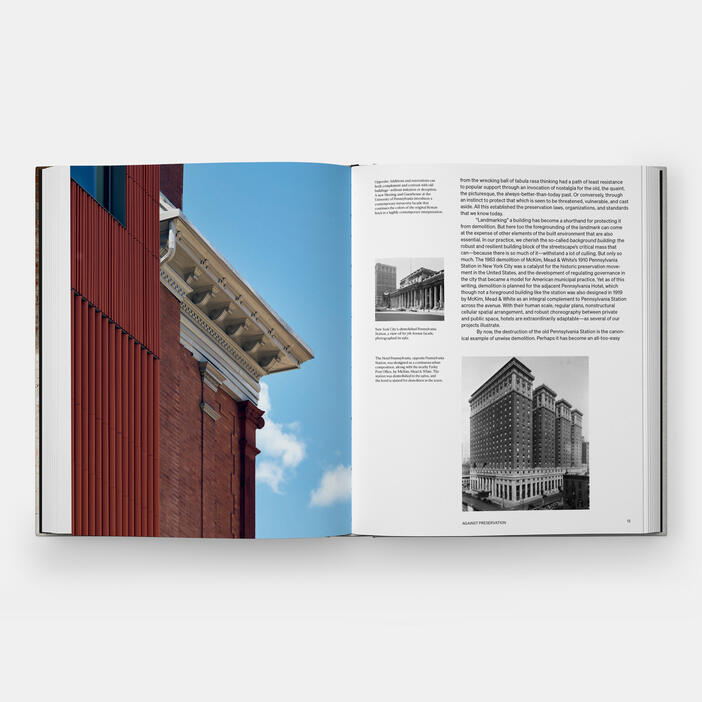
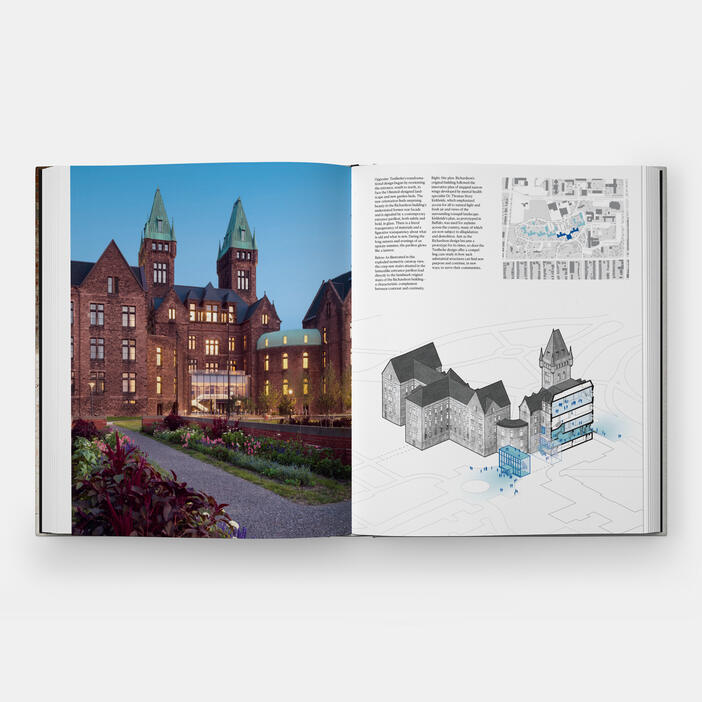
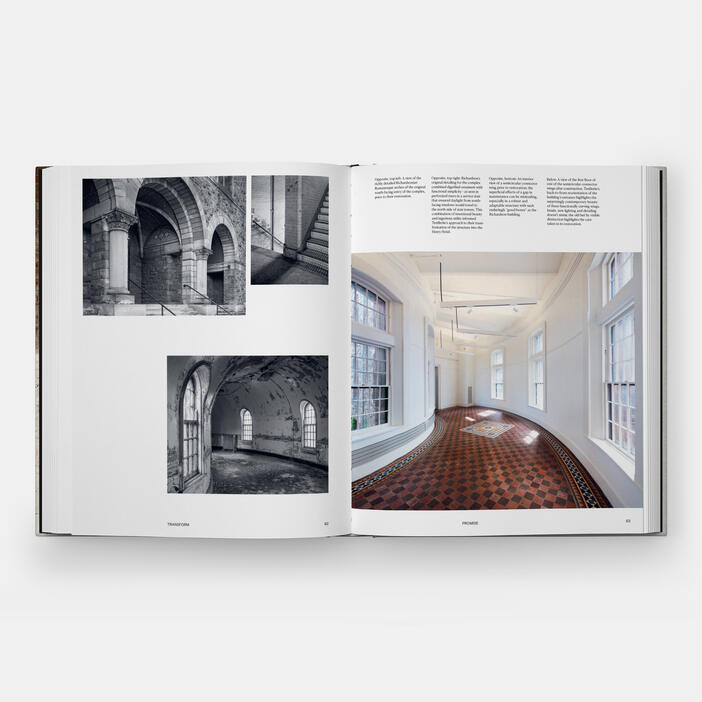
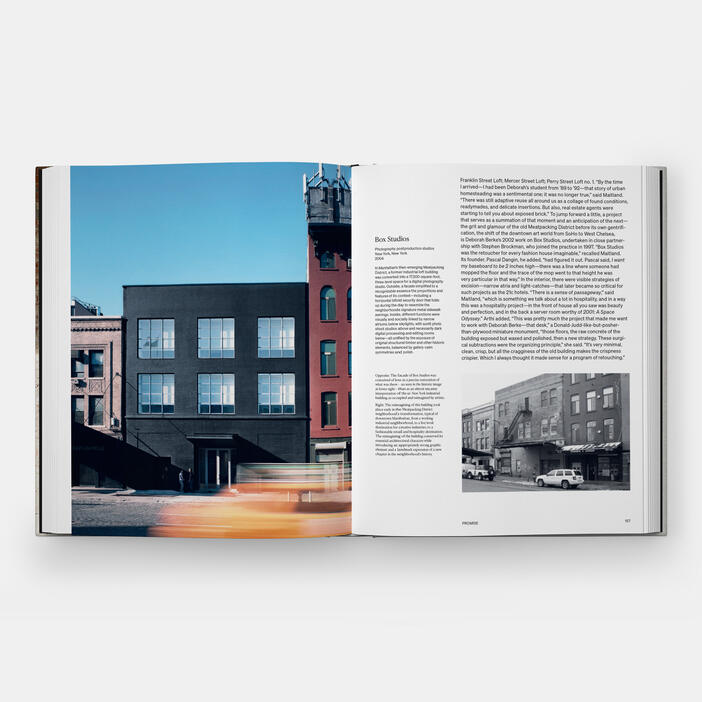
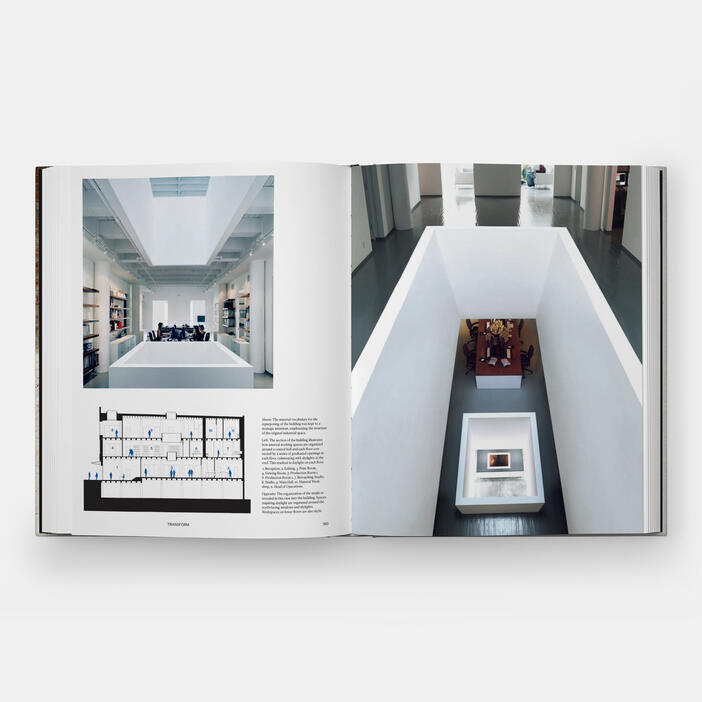
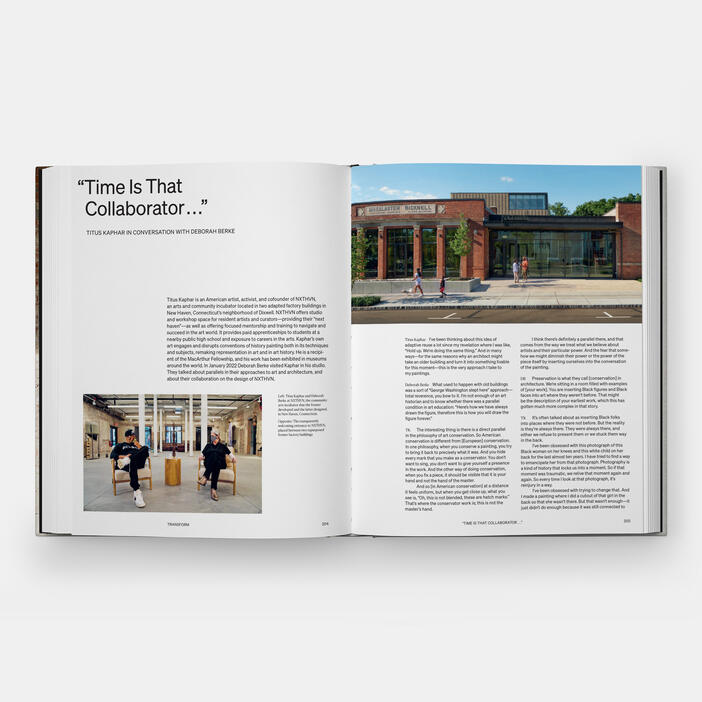
















Transform: Promising Places, Second Chances, and the Architecture of Transformational Change
Price AUD$79.95 Price CAD$74.95 Price £39.95 Price €49.95 Price USD$60.00 Price T60.00
'Beautifully presented and accompanied by abundant photographs and plan diagrams, the entry masterfully explores Berke’s modernist inclinations, her minimalist style, and her firm’s savvy handling of spaces and materials. Architectural students and practitioners will find much to appreciate.' - Publishers Weekly
TenBerke publishes Transform with Monacelli, an argument for the regenerative reuse of old buildings
Adaptive Reuse is how architecture helps us grow into a changing world. It combines the best of old and new—through renovation, restoration, regeneration, reimagination, and repair. A practice of sensitive stewardship and creative conservation, it is what turns the obsolete into the germane.
With TenBerke’s most recent publication with Monacelli, Transform: Promising Places, Second Chances, and the Architecture of Transformational Change, the studio shows that creatively and visibly repurposed places are also where people feel especially empowered to make new beginnings in their own lives.
Transform illustrates how TenBerke, in all its transformative designs, reveals the signs and signatures of adaptation, composes a continuity in which the after doesn’t erase the before, and designs places where people are able to leave new traces—and make their mark. The adaptive reuse in Transform goes beyond the usual before and after of renovation and conversion, into the long and lively places of buildings, which are always being remade by the people who use them.
Transform includes Against Historic Preservation, an argument for the creative reuse of old buildings by Deborah Berke, founder of TenBerke and dean of the Yale School of Architecture; along with Promise, a critical narrative essay by award-winning design writer Thomas de Monchaux. It also includes The Environmental Case for Adapting Buildings at Scale, a report by urban scientist Karen C. Seto who looks to building reuse as a means to manage the untenable rate of urbanization of our natural environments. Transform includes, in the words of artist Titus Kaphar, “Time Is That Collaborator. . .” a conversation between himself and Berke inspired by TenBerke’s design for NXTHVN, a community arts center that he founded in New Haven Connecticut, bringing former industrial buildings to new life.
With editorial and creative direction from TenBerke Senior Principal Arthi Krishnamoorthy, Transform presents accessible and actionable case studies of adaptive reuse projects, revealing the thinking that guides each one: from NXTHVN, where an arts incubator and community center was born out of disused factories; to the Yale School of Art, where an old swimming pool became a gallery and classroom; to the pioneering 122 Community Arts Center in downtown Manhattan, where an old public school became a new performance space and civic crossroads, to the 21c hotel in Oklahoma City, where one of the Ford Motor Company’s first assembly plants became a hotel and event space, catalyzing the revitalization of a new livable neighborhood.
In Transform, we see that the architecture of adaptation offers a new approach to old places that is at once sensitive and bold, at once conscious of histories and legacies, yet optimistically forward-looking to new possibilities. This is the architecture of second chances, of promising places, and of transformational change.
Specifications:- Format: Hardback
- Size: 279 × 229 mm (11 × 9 in)
- Pages: 224 pp
- Illustrations: 250 illustrations
- ISBN: 9781580936088
Deborah Berke is one of the most high-profile and inspiring practitioners and instructors in architecture today. She is principal of Deborah Berke Partners, with whom she has created a distinct and lasting body of work. Berke sets the creative direction for the practice and brings her design vision to each project, culminating in the firm being named to the AD100 list for its residential work in 2022. The office’s approach to architecture ― informed by its pursuit of authenticity, love for the visual arts, and intellectual rigor ― pervades its design processes and projects. In July 2016, Berke became the first woman dean of the Yale School of Architecture, where she has been a professor since 1987.
She was named one of Architectural Record’s Women in Architecture Design Leadership awardees in 2021, and is the recipient of the 2022 Topaz Medallion for Excellence in Architectural Education. Berke is a fellow of the American Institute of Architects, a Trustee and Vice President of the Urban Design Forum, a James Howell Foundation Board Member, a member of the Yaddo Board of Directors, and a member of the Pritzker Prize jury. She is a graduate of the Rhode Island School of Design (B.F.A. and B. Architecture) and The City University of New York (M. Urban Planning in Urban Design). In 2005, she was awarded an Honorary Doctorate of Fine Arts from the Rhode Island School of Design.
Thomas de Monchaux is an architect and award-winning architecture critic. He teaches as an adjunct assistant professor of architecture at Columbia University’s Graduate School of Architecture, Planning and Preservation, especially shepherding its Shape of Two Cities: New York/Paris program. His writing about design has appeared in the New Yorker and the New York Times, and in such journals as Log and n+1.
‘In her new book, architect Deborah Berke builds a case for giving old buildings new life.’ – Bloomberg CityLab
‘A new tome that outlines the New York studio's extensive experience and sustainable approach around adaptive reuse.’ – Wallpaper
‘A manifesto and survey of contemporary practice by one of the leading offices in this domain.’ – Aspire Design + Home
‘Beautifully presented and accompanied by abundant photographs and plan diagrams, the entry masterfully explores Berke’s modernist inclinations, her minimalist style, and her firm’s savvy handling of spaces and materials. Architectural students and practitioners will find much to appreciate.’ – Publishers Weekly